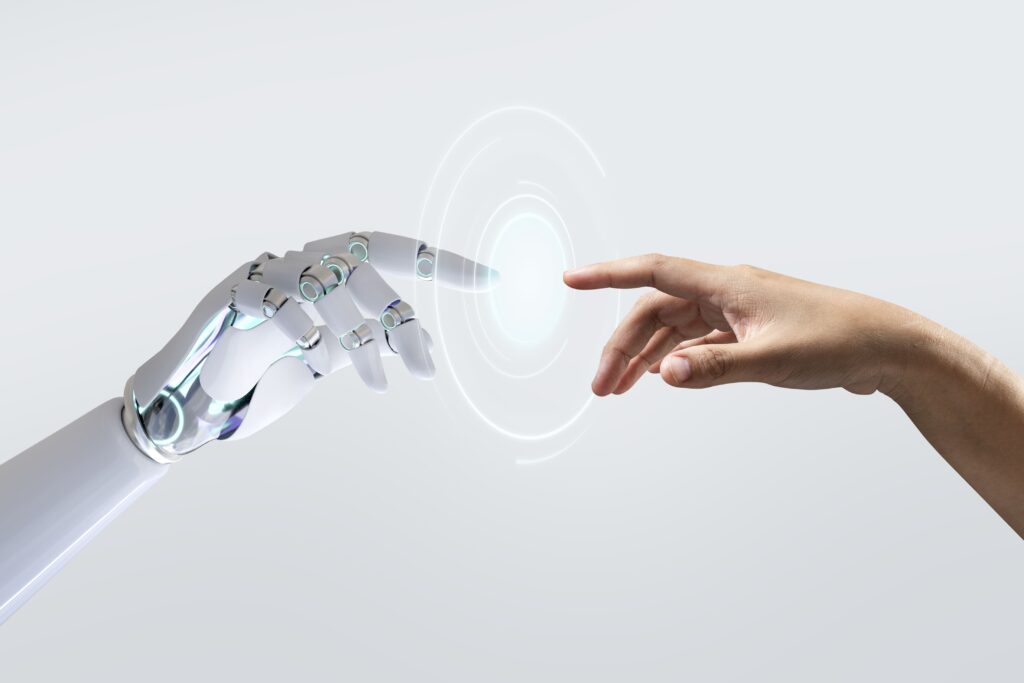What Is a Pescatarian Diet?
A pescatarian diet is mostly plant-based but includes fish and seafood as the main animal protein. One of the key pescatarian diet benefits is that it provides lean protein and essential nutrients while focusing on plant-based foods like fruits, vegetables, whole grains, nuts, and legumes. Unlike vegetarians, who avoid meat and fish, pescatarians include seafood in their diet for added nutritional value.
This diet combines the health benefits of vegetarianism with the high-quality protein and omega-3s found in fish. Compared to diets that include red and processed meats, a pescatarian diet is linked to lower risks of heart disease and inflammation.
What Do Pescatarians Eat?
Pescatarians enjoy a diverse and nutrient-rich diet that consists of:
- Seafood: Fish like salmon, tuna, trout, and sardines, along with shellfish like shrimp, crab, and mussels.
- Plant-Based Proteins: Beans, lentils, tofu, tempeh, and edamame.
- Fruits and Vegetables: A variety of fresh produce to provide essential vitamins, minerals, and antioxidants.
- Whole Grains: Quinoa, brown rice, oats, and whole wheat products for sustained energy.
- Healthy Fats: Olive oil, avocado, nuts, and seeds for brain and heart health.
- Dairy and Eggs (Optional): Some pescatarians choose to include dairy and eggs, while others avoid them.
This well-rounded approach ensures a myriad of pescatarian diet benefits. They get a mix of essential nutrients while avoiding the saturated fats and processed meats common in other diets.
Is a Pescatarian Diet Healthy?
Yes, a pescatarian diet is widely considered healthy. It emphasizes nutrient-dense foods and lean protein sources. Here’s why:
- Rich in Omega-3 Fatty Acids: Fish like salmon and sardines are packed with omega-3s. These fats support brain function, reduce inflammation, and improve heart health.
- Low in Saturated Fat: Unlike red and processed meats, seafood contains less unhealthy fat. This helps lower the risk of heart disease.
- Packed with Essential Nutrients: A pescatarian diet provides key vitamins and minerals like vitamin D, B12, iodine, and iron. These nutrients are vital for overall well-being.
- Supports Digestive Health: The high fiber intake from plant-based foods promotes gut health and prevents digestive issues.
- Reduces the Risk of Chronic Diseases: Studies link pescatarian diets to a lower risk of heart disease, diabetes, and obesity.
Eating a variety of whole, nutrient-rich foods supports both physical and mental health. A pescatarian diet can help employees boost energy, improve focus, and enhance overall well-being.
Benefits of a Pescatarian Diet for Employees
A well-balanced diet is key to workplace performance. A pescatarian diet provides essential nutrients that support both physical and mental well-being. Nutrient-rich foods like fish, seafood, whole grains, and vegetables help sustain energy and improve focus. This leads to better health, increased productivity, and reduced absenteeism.
Increased Energy and Productivity
One of the primary benefits of a pescatarian diet is its ability to sustain energy levels throughout the workday.
- Omega-3 fatty acids and lean proteins found in fish like salmon, trout, and sardines provide long-lasting energy without the crashes associated with processed foods and refined sugars.
- Unlike red and processed meats, which are high in saturated fats and can lead to sluggishness, a pescatarian diet emphasizes clean, protein-rich meals that fuel the body and keep employees alert.
- Whole grains and fiber-rich vegetables further stabilize blood sugar levels, preventing energy dips and keeping focus sharp.
Heart and Brain Health
Cardiovascular and cognitive health are essential for long-term employee well-being.
- Heart Health: Another benefit of a pescatarian diet is that its rich in heart-healthy omega-3s, which help reduce inflammation, lower blood pressure, and improve cholesterol levels, reducing the risk of heart disease.
- Brain Function: Omega-3 fatty acids play a vital role in cognitive function, memory retention, and mental clarity, ensuring that employees stay focused and perform at their best.
- Reduced Risk of Cognitive Decline: Regular consumption of fatty fish has been linked to lower risks of Alzheimer’s and other neurodegenerative diseases, supporting long-term brain health.
Supports Mental Well-Being
What employees eat can directly impact their mental health, stress levels, and emotional resilience.
- Nutrient-rich foods in a pescatarian diet, such as leafy greens, nuts, and fish, are packed with vitamins and minerals. These help you regulate mood and reduce stress.
- Magnesium, vitamin D, and B vitamins—abundant in fish and plant-based foods—are essential for serotonin production, which helps combat anxiety and depression.
- By reducing processed foods and increasing intake of healthy fats and antioxidants, a pescatarian diet supports better sleep, improved mood, and overall emotional balance in the workplace.
Reduced Workplace Fatigue
Fatigue is a common workplace challenge that can lead to decreased productivity and engagement.
- A balanced pescatarian diet prevents energy crashes by stabilizing blood sugar levels with whole foods, proteins, and fiber.
- Anti-inflammatory foods like salmon, walnuts, and olive oil help reduce oxidative stress, which can contribute to fatigue.
- Hydration plays a crucial role in preventing exhaustion. Many pescatarian meals, including fish and vegetables, contain high water content, helping employees stay hydrated and alert throughout the day.
A pescatarian diet is more than just a health-conscious choice—it can be a powerful tool for enhancing workplace productivity, focus, and overall well-being. By providing the right fuel for the body and mind, employees can perform at their peak, contributing to a healthier and more engaged workforce.
Pros and Cons of a Pescatarian Diet for Employees
While the pescatarian diet offers numerous health and productivity benefits, it’s important to consider both the advantages and potential challenges employees may face when adopting this eating pattern in the workplace.
Benefits of a Pescatarian Diet for Employees
Improved Overall Health
- A pescatarian diet is rich in lean proteins, omega-3 fatty acids, and essential vitamins. These support heart health, brain function, and energy levels.
- The emphasis on plant-based foods and seafood reduces inflammation and lowers the risk of chronic diseases such as heart disease, diabetes, and high blood pressure.
Sustainable and High-Quality Protein Sources
- Seafood is a cleaner protein option compared to red or processed meats, which have been linked to cardiovascular disease.
- The inclusion of plant-based proteins like beans, lentils, and nuts ensures adequate protein intake without relying solely on seafood.
Anti-Inflammatory Benefits
- Many foods in the pescatarian diet, such as fatty fish, olive oil, and nuts, are known for their anti-inflammatory properties. This helps to reduce workplace-related stress and fatigue.
- Anti-inflammatory foods support joint health and muscle recovery. This can be beneficial for employees with sedentary desk jobs or those who engage in workplace wellness activities.
Supports Cognitive Function and Mood Stability
- The combination of omega-3s, antioxidants, and essential vitamins can enhance brain function, reduce stress, and improve mood. This leads to a more engaged and resilient workforce.
Cons of a Pescatarian Diet for Employees
Potential Cost Concerns
- High-quality seafood can be more expensive than other protein sources. This may be a barrier for some employees, particularly when dining out or meal prepping on a budget.
- Sustainable and wild-caught fish, while healthier, often come at a premium price compared to farmed fish.
Limited Workplace Cafeteria or Meal Options
- Many workplace cafeterias and catered meals cater to omnivorous diets, often prioritizing meat-based dishes over pescatarian or vegetarian-friendly options.
- Employees following a pescatarian diet may need to plan their meals in advance or advocate for more diverse cafeteria offerings.
The Need for Careful Seafood Sourcing
- Not all seafood is created equal. Employees need to be mindful of mercury levels in certain fish (such as tuna and swordfish) and choose sustainable seafood options.
- Overfishing and environmental concerns make ethically sourced fish an important factor when considering a long-term pescatarian lifestyle.
Final Thoughts
Despite a few challenges, a pescatarian diet offers significant benefits that can enhance employee health, productivity, and overall well-being. Employers can support pescatarian and plant-based eating habits by providing nutrient-rich meal options, encouraging healthy food choices, and fostering a workplace culture that prioritizes well-being.
Conclusion
A pescatarian diet is more than just a healthy eating choice—it’s a powerful way to enhance employee well-being, energy levels, and workplace productivity. Research from Brigham Young University found that employees with unhealthy diets were 66% more likely to report a loss in productivity. By incorporating nutrient-dense foods like fish, seafood, whole grains, and plant-based proteins, employees can experience sustained energy, improved focus, better heart health, and reduced workplace fatigue. The anti-inflammatory and brain-boosting benefits of omega-3s further contribute to overall mental and emotional well-being, helping employees stay engaged and resilient in their roles.
While challenges such as cost and meal availability may exist, employers can play a key role in supporting diverse dietary choices by offering a variety of healthy meal options, accommodating pescatarian-friendly catering, and encouraging workplace wellness initiatives. At Woliba, we recognize the importance of nutrition in overall workplace wellness. Our platform provides comprehensive wellness resources, fitness challenges, and nutrition education to help employees make informed choices that support their health and performance. A healthier workforce leads to a more engaged and productive workplace, and Woliba is here to support organizations every step of the way.








